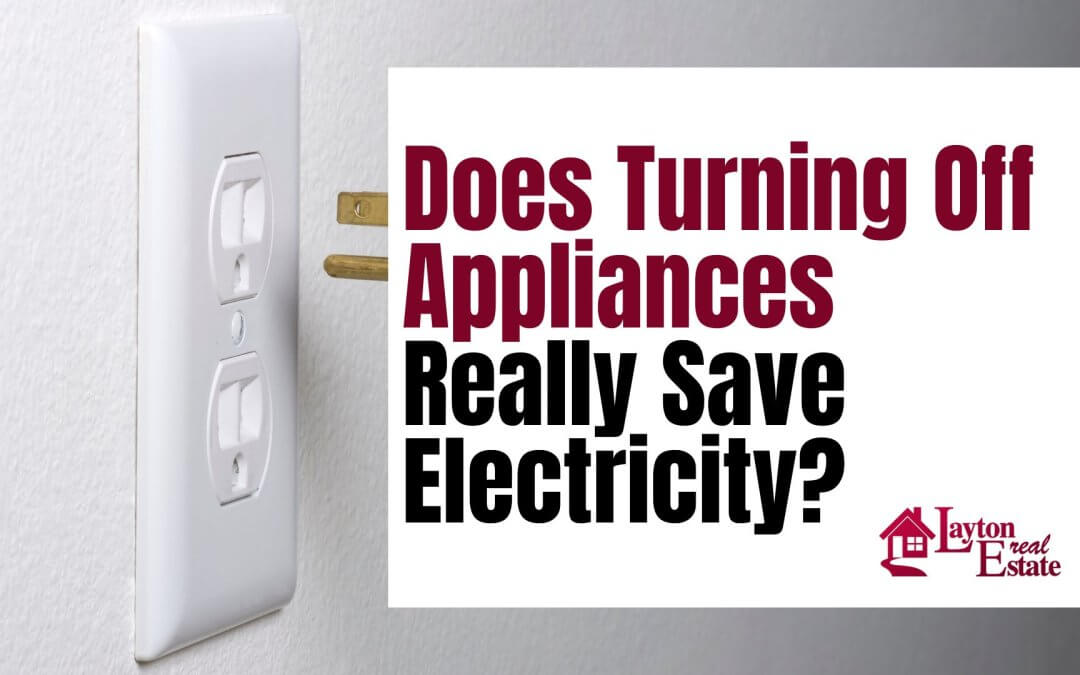We’re all looking for ways to reduce our carbon footprint and save a few bucks on our electricity bills. One common piece of advice you’ve probably heard is to unplug your appliances when they’re not in use. According to the Kansas Energy Information Network, the average household in Kansas spends over $1,200 annually on electricity. But does this really make a difference? Let’s talk about phantom energy and see if unplugging truly saves electricity.
The Phantom Menace: Standby Power
Every time you turn off your TV using a remote, it’s not entirely off. Many of our modern appliances and gadgets consume electricity even when they’re turned off. This is often referred to as standby power or vampire power. It’s the energy that your TV, computer, or microwave uses when it’s waiting to be turned on again, or when it’s updating software overnight. Over time, these little bits of energy can add up, silently contributing to your electricity bill.
But why do devices use standby power? Many modern devices are designed to start quickly. To achieve this, they remain in a low-power mode, always ready to spring into action. This convenience comes at the cost of consuming energy continuously.
How Much Can You Really Save?
While the energy consumed by a single appliance in standby mode might be small, think about all the devices in your home. From your gaming console to your coffee maker, these numbers can add up. By unplugging, you could see a noticeable difference in your electricity bill. It’s a simple step that contributes to energy-efficient living. Some studies suggest that standby power can account for 10% of an average household’s annual electricity consumption! According to the Kansas Energy Efficiency Program, standby power can account for up to 10% of an average Kansas household’s annual electricity consumption! That’s potentially over $120 saved annually just by unplugging.
Making It Practical
Now, we get it. Unplugging every single device in your home every day isn’t practical. But there are ways to make this easier:
- Power Strips: Plug multiple devices into a power strip. When they’re not in use, simply turn off the strip. This is especially useful for home entertainment systems or home office setups. One switch, and you cut off power to multiple devices.
- Smart Plugs: These allow you to control the power usage of each outlet through an app. It’s the modern way to combat phantom energy. You can even schedule when devices turn on or off.
- Energy Monitors: These gadgets can show you which devices are using the most power, helping you make informed decisions about what to unplug. Knowledge is power, after all!
The Bigger Picture
While unplugging can save electricity, it’s essential to look at the bigger picture of energy consumption. Consider investing in energy-efficient appliances that use less power overall or have smarter standby modes. Explore renewable energy options for your home, like solar panels. Every little bit helps, and unplugging is just the first step in a more sustainable lifestyle.
Furthermore, consider the environmental impact. By reducing your energy consumption, you’re not only saving money but also reducing your carbon footprint. This has a positive effect on the environment, reducing the demand on power plants and decreasing greenhouse gas emissions.
Tips for a More Energy-Efficient Home
Beyond unplugging, there are several ways to make your home more energy-efficient:
- Insulation: Proper insulation can keep your home warm in the winter and cool in the summer, reducing the need for heating and cooling.
- LED Bulbs: They use significantly less energy than traditional bulbs and last much longer.
- Programmable Thermostats: These can adjust the temperature when you’re not home, reducing energy consumption.
- Water-Saving Fixtures: Low-flow toilets and shower heads can reduce your water usage, saving both water and the energy used to heat it.
In the grand scheme of things, every individual effort counts. By taking steps to reduce our energy consumption, we’re not only benefiting ourselves but also contributing to a larger, global effort to conserve energy and protect our planet.
So, does unplugging appliances save electricity? The short answer is yes. While it might seem like a small action, it’s a step towards a greener and more cost-effective home. Embrace the habit of unplugging, explore energy-saving gadgets, and remember: every watt counts! Bookmark our blog and check back regularly for fresh insights.

